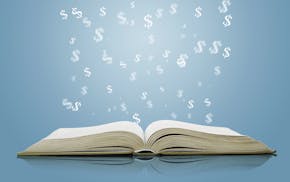Fed up with the stock market? Sick of greedy megabanks and Wall Street bailouts? Then take your money and invest in what you eat. That's the idea behind slow money, a movement coming into its own at a time when interest in local food is rising and exasperation over a global financial system gone wild is high.
Slow money is named after the slow food movement that developed to counteract our fast food, eat-on-the-go society. Championed by Woody Tasch, a venture capitalist, slow money is Tasch's antidote to what he calls fast money -- "money that is disconnected from people and place and so is zooming around the planet invested in very complicated, large-scale, distant things," he explained. Slow money "is the opposite, investing in things that are close to home, that you understand, where you can know what your money is doing."
Right now, slow money is focused on investing in local food enterprises -- the organic farmer, the restaurant that uses local ingredients, the neighborhood microbrewery. But there's no reason why the slow money principles couldn't be transferred to other local ventures -- your neighborhood news source, your independent retailers, local energy sources, you name it.
Last month, 450 people from 34 states and six countries met in New Mexico to discuss the concept. The idea is so new that Tasch and his followers are still trying to figure out how slow money will work on a practical level.
Fred Haberman, president of the Minneapolis public relations firm Haberman and Associates and a founding member of the Slow Money Alliance, can envision investors taking 5 or 10 percent of their portfolios and investing in local food enterprises the way you would consider investing in emerging markets or precious metals. (Tasch is a Haberman client.)
And at this early stage, who can say whether slow money investments would beat the returns of your stocks or bonds or perform more like a CD?
Steven Read, a farmer and cheesemaker near Nerstrand, Minn., hopes his Farm Haven LLC could be a model. The entity was created to offer investment memberships in his family farm, called Shepherd's Way. The exact terms of the investment would be negotiated, but Read envisions memberships starting at $10,000, with returns in the 4 to 6 percent range over a 10- or 20-year term. The farm has been struggling to survive since an arsonist burned down the barn in 2005, killing 500 sheep. Last year, the farm's bank refused to refinance during the mortgage crisis.
Read is quick to point out that slow money isn't charity. "It's a for-profit, but possibly a slower profit," he said. On top of the financial return, you are "also contributing to the community, you're contributing to your value system, you're contributing to local food, to a healthier world."
As good as that sounds, I bet it won't be an easy sell. After the losses investors have suffered this past year, most want to make back as much as they can. Plus, the masses are notorious performance chasers.
"When you come right down to it, people want the same rates of return, at the same speed as they do in every other kind of investment," said Nina Rothschild Utne, founder of the Utne Reader magazine and a slow money supporter. "At some point we're going to have to go, 'Well, OK, do you want the return that I put in my pocket this quarter or do you want the return that's going to be [there] for my children and your children?'"
Suppose you want the latter? What can you do?
Tasch says to find a CSA -- community supported agriculture group -- where you make a preseason payment to a farmer for a weekly share of produce. CSAs are like an investment because you share the farmer's bounty and the risk that bad weather will wipe out a crop. Another idea is to put some money in a community development financial institution that promotes investments in struggling local areas. Or, like Edina native Shelly Roche, practice slow money when you shop.
Every time Roche buys something, she asks herself: "Is this a company I want to support or is there a better choice I can make that's more aligned with my values?" Getting used to viewing our purchasing decisions as "mini, micro-investments" will make it easier for us to start investing larger sums in slow money when the time comes, said Roche, 33, an entrepreneur who now lives in Maryland.
Kara McGuire writes about money. 612-673-7293 or kmcguire@startribune.com. Follow her on Twitter: www.twitter.com/kablog.


